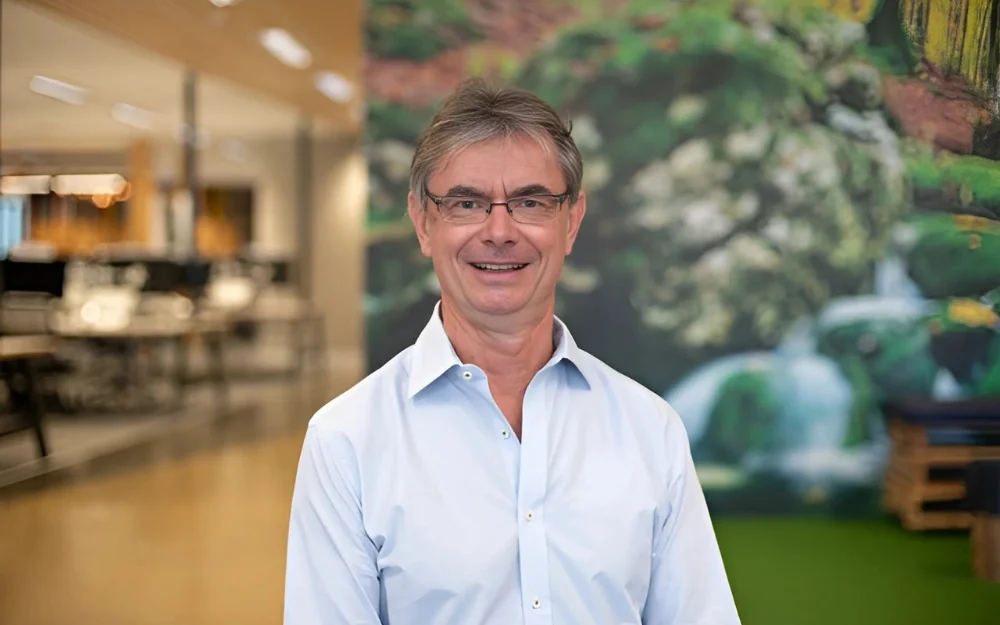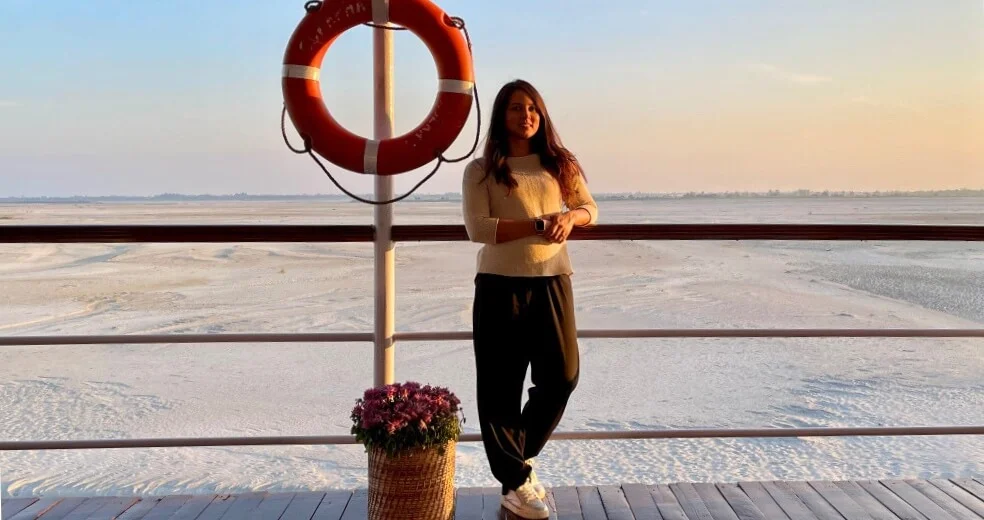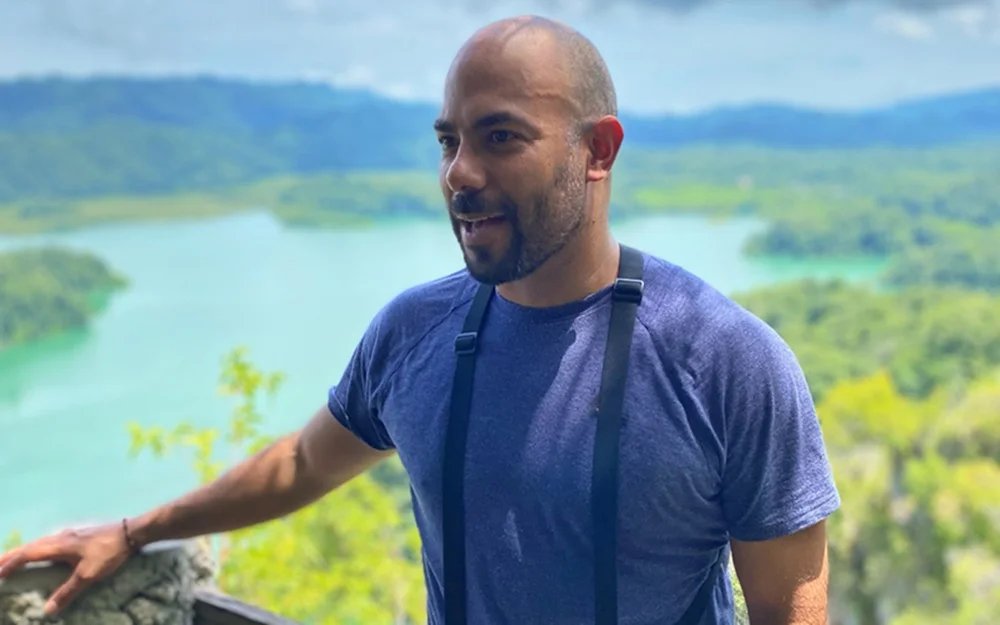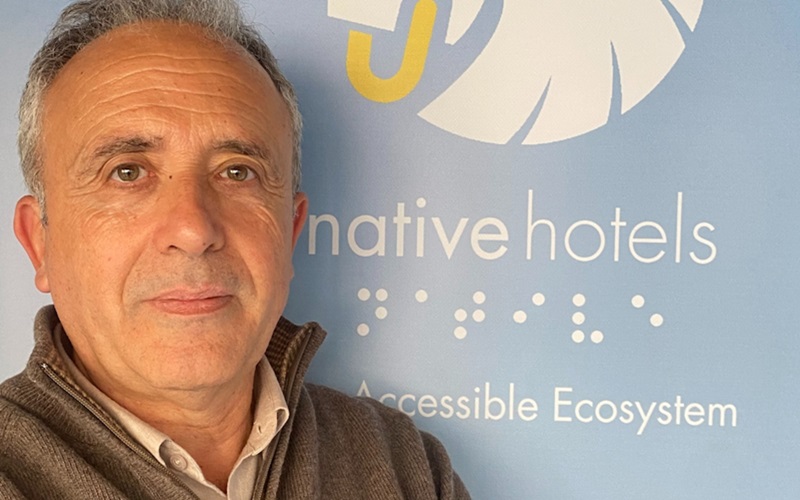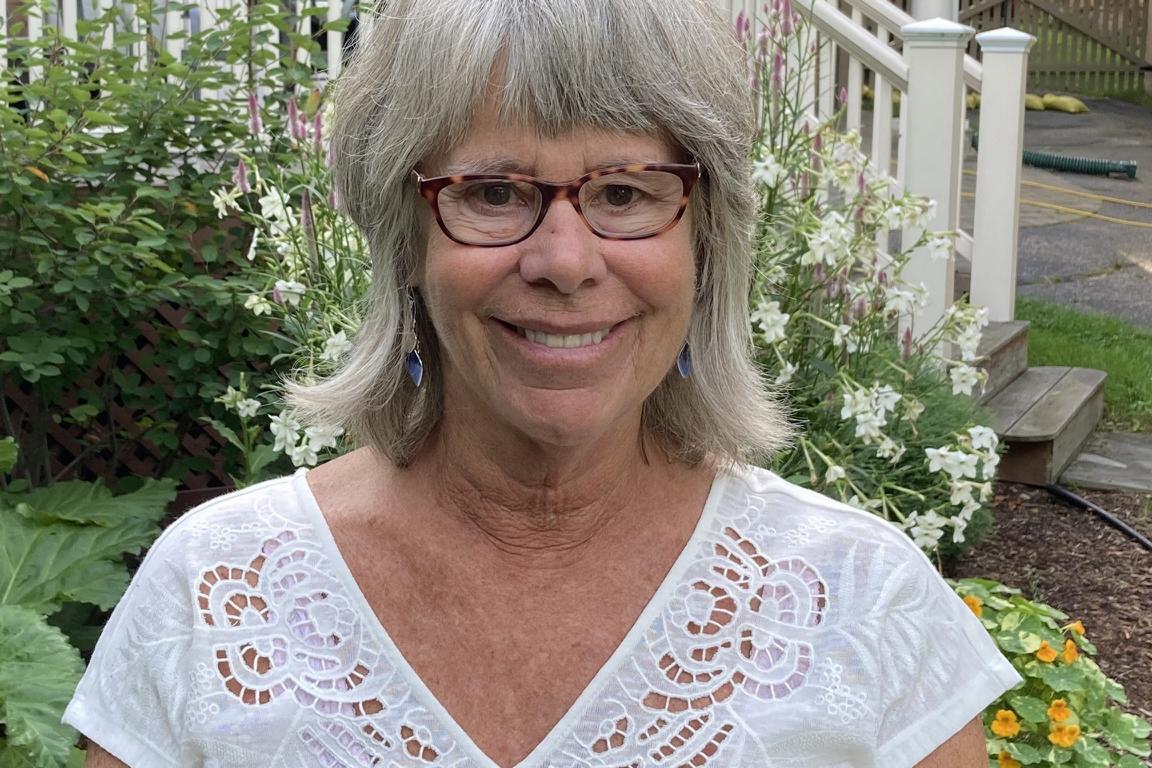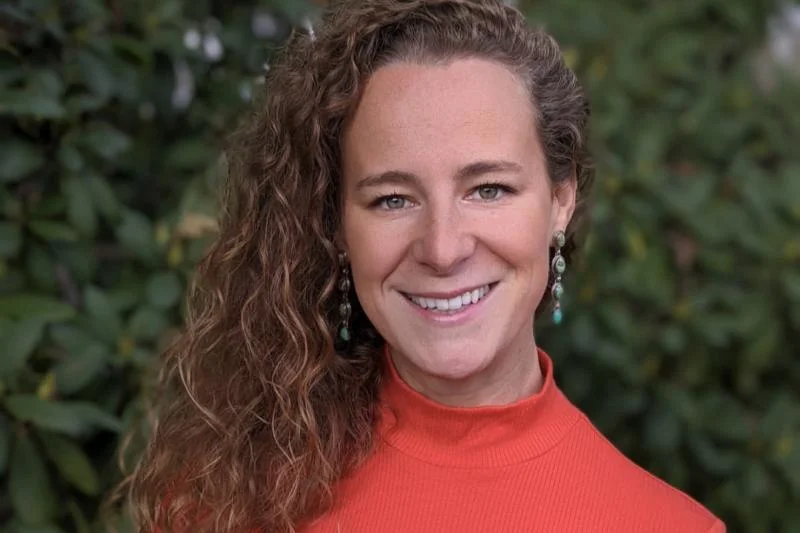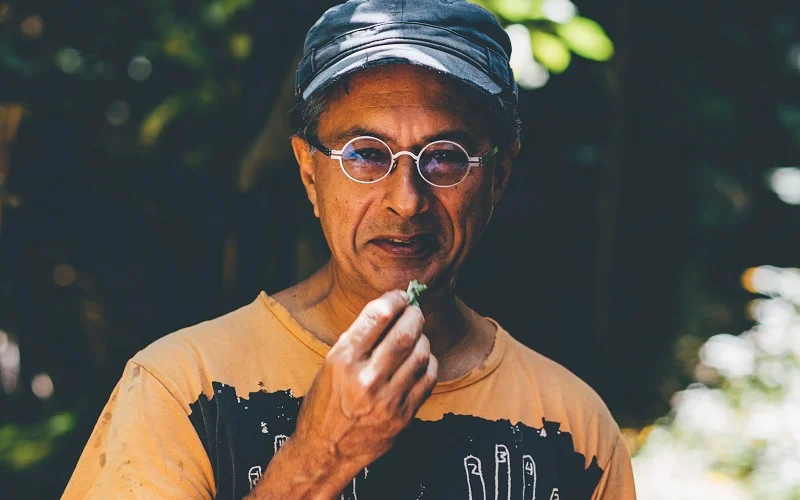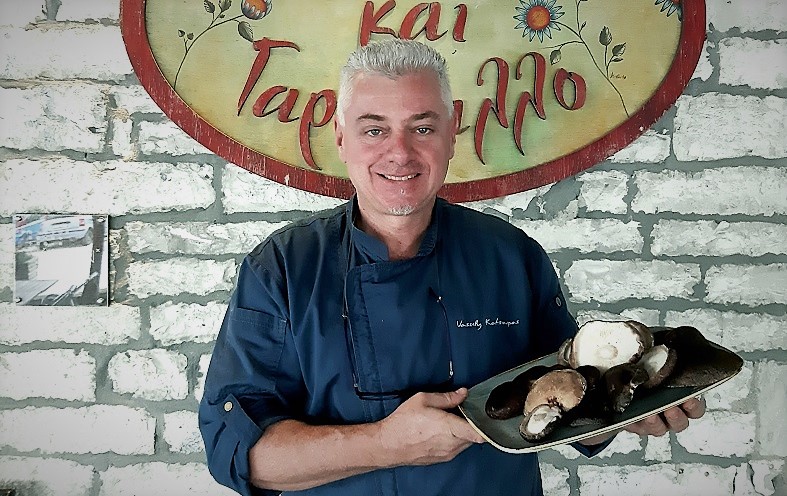 How do you run a restaurant sustainably? Vassily Katsoupas of the acclaimed yet down-to-earth, family-run restaurant Kanela & Garyfallo in the mountains of Epirus, northern Greece, in this interview shares his experience and tells us how we can eat better and enjoy more responsibly.
How do you run a restaurant sustainably? Vassily Katsoupas of the acclaimed yet down-to-earth, family-run restaurant Kanela & Garyfallo in the mountains of Epirus, northern Greece, in this interview shares his experience and tells us how we can eat better and enjoy more responsibly.
Vassily, before starting your culinary adventure with your restaurant Kanela & Garyfallo in Greece, you lived in Canada and worked in the media business. What triggered this change of career path – and location?
Well, as the old adage goes, life is what happens to you while you are busy making other plans… My decision to move here was triggered by a divorce. I always had this romantic dream to move back to my family’s place of origin in the mountains of Epirus, in northern Greece, where I spent many memorable summer holidays in my youth.
Epirus is a very green place with wonderful nature and landscapes, and it always felt to me as paradise on earth, beckoning for my return. This feeling became even stronger after the changes in my family life.
Kanela & Garyfallo is unique in that you specialize in mushrooms: wild ones and those cultivated in your own farm. Why? Where does the passion for mushrooms come from?
I would often spot mushrooms while trekking and loved eating them, but my interest really developed while taking a course in bio-remediation and finding out about the potential uses of different plants and fungi for restoring polluted soils.
Later, I became even more fascinated through my contact with the renowned mushroom researcher and author Paul Stamets. Few people realize how important fungi are for our biosphere and how useful they can be to our communities as sources of food, medicine or even environmental restoration technologies.
On the other hand, I had inherited a culinary “gene”, so to speak, as I literally grew up in our family-owned restaurant and have worked forever in this business. Combining my education with my family tradition, I came up with the idea of teaching people about mushrooms – one bite at a time.
Which would you consider the main challenges for a small restaurant, in terms of operating sustainably?
The main challenge is deciding where to start. There are so many issues to be addressed in terms of sustainability!
The obvious choice would be to focus on sourcing sustainably grown food, but minimizing energy and water use, as well as food waste, are equally daunting issues.
Striking the right balance is extremely important. One needs to focus on achieving maximum impact while balancing operational costs and to continue building up on steps taken in the right direction.
Sustainability values and criteria must be integrated in all operational modalities, but it is equally important to focus on the continuous need for teaching and communicating effectively with customers, suppliers and staff about the value of doing so!
Food waste is a topic which we discussed at length in our interview with Benjamin Lephilibert. To your mind, how can small restaurants with limited financial means be smart about production and disposal of food waste?
Being smart starts with basic grandma wisdom! You know, older generations were very skilled at minimizing waste and maximizing the productive use of every bit of food on hand.
At Kanela & Garyfallo, we follow several well-tested methods: Fresh, quickly spoiling foods are bought in modest quantities to minimize spoilage, and supplies are managed carefully to ensure new arrivals get in the back of the line.
We buy in season in bulk to ensure best quality and price, and fill up our pantry with various preserves and condiments. In the kitchen, we make sure to utilize fully all usable food scraps by making our own vegetable and meat stocks and improvising various condiments.
Leftovers are donated to friends with chicken and geese, in return for an occasional egg basket. Table leftovers are gathered for the dogs guarding our farm, and the patio cats in charge of endless customer entertainment…
In the front of the house, we follow a sensible eating strategy – our aim is to please, not to increase sales at the expense of our customers and the environment. We offer most items on the menu in half portions and warn against excessive orders, clearly stating our aim to reduce food waste. As an incentive, complimentary desserts are promised to those who leave enough room.
In our experience, the single most effective strategy to minimize food waste at the table is to suggest clients to eat in typical Greek family style, sharing all food, opting for a variety of small portions and repeat orders.
This way, customers enjoy their dining experience more, as they get to taste a variety of dishes without overeating. And generally the bill tends to be lower compared to what it would have been otherwise.
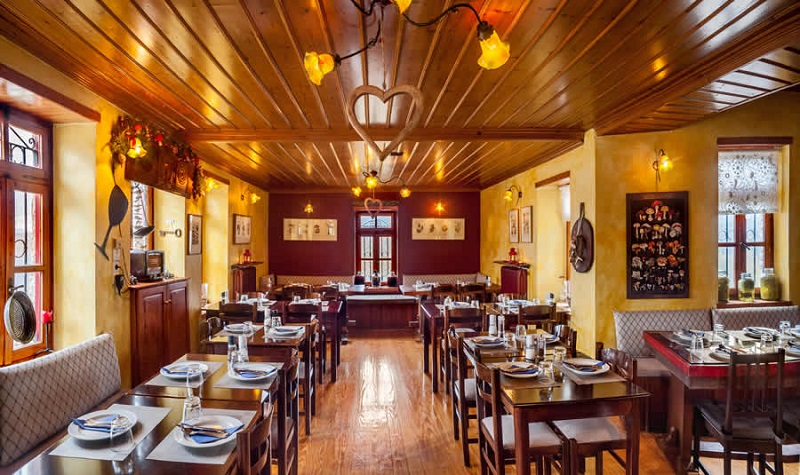
Food provenance – where food is sourced from – is another topic receiving considerable attention now. Which rules or guidelines do you follow in this regard, at Kanela & Garyfallo?
Our main rules are to stay local, seasonal and as far away from industrially produced food as possible. We are also not interested in exotic, out of season food or produce that has to travel long distances, even if it is labelled “organic”.
We produce shiitake and oyster mushrooms, as well as some specialty vegetables and herbs in our farm 8 months of the year, skipping our low season, the cold winter months, to save on energy costs.
Our associate collectors supply us throughout the year with a variety of seasonal wild vegetables, fruits, flowers, herbs and more than 30 different kinds of wild mushrooms. We buy in bulk and preserve the excess by freezing, drying and pickling, to have on hand throughout the year.
Several local producers supply us with fresh vegetables, pulses, grains, eggs and dairy products, as well as locally grown, free range beef, lamb, goat and chicken.
Overall, about 80 percent of our food supplies is grown or collected within a 20 km radius. Buying local makes environmental as well as economic sense and helps us to be socially responsible. By relying on local producers and collectors we have strengthened our local community and provided venues for the development of sustainable local economies.
Which other tricks and tips would you share with us, in terms of how restaurants can become more sustainable?
In terms of the bigger picture, I think those in the gastronomy business have a responsibility to educate ourselves as well as our staff and customers about healthier, more sustainable eating. This does not necessarily mean lecturing people. I prefer giving our customers more options to discover how they can make a difference on a daily basis through something as basic as eating, whether at home or in a restaurant.
We do not need to re-invent the wheel. All we need is to study the tradition of the cucina povera in the European south and most other rural places around the world. Since the Stone Age, people have been very inventive at making the most out of the little they had on hand. It is only in the last century of quick paced industrialization, urbanization and rampant consumerism that we have been weaned off sustainable eating traditions.
One of the most pressing issues we need to address – especially in the developed, affluent world – is unsustainable meat consumption. Restaurants must offer more meatless options and educate customers to eat meat smarter.
At Kanela & Garyfallo we offer a menu that is 75% vegetarian and vegan. All meat used is local and comes from free range animals, not factory farms. We follow a nose to tail policy, using all parts of the animal, not just the premium cuts.
Little meat, lots of vegetables, grains, legumes and fruits: the essence of the Mediterranean diet is the roadmap to sustainability.
Which trends do you witness at the moment, which might support or hinder a more sustainable restaurant scene and culinary experience?
I must admit of having a love-hate relationship with the whole gourmet glamorization of the restaurant scene, the rush to develop ever more intricate, complicated and beautiful abstractions served as exclusive culinary experiences.
I am fascinated by the art and finesse of many celebrated gourmet chefs, but I think there is a sharp contradiction between that scene, the way most people eat and the way our society relates to nature’s bounty.
To me food is about love, family, sharing and belonging. Eating around a table with people you care about, sharing food and thoughts, is a cardinal humanizing experience, but it is also a critical moment of interaction with our natural world and the way we view ourselves in relation to the Earth.
There is tremendous waste, over-processing of food and drive to impress with extravagant materials from the other side of the planet or the production of super complicated, altered states of food through endless, tortuous, technological interventions.
To support a more sustainable restaurant scene and culinary experience, we need more simplicity, more spirituality, more respect for nature’s bounty and less catwalk.
If you had to pick one, which dish would you want to be served yourself – for example on your special day?
That would be a grilled mushroom stuffed with “Kayanas”, a quick and simple Greek peasant dish of scrambled eggs cooked with a reduced confit of tomato, pepper and courgette, sprinkled with some thyme, hot chili and a tiny bit of crumbled feta cheese! A whole lot of earthy umami…
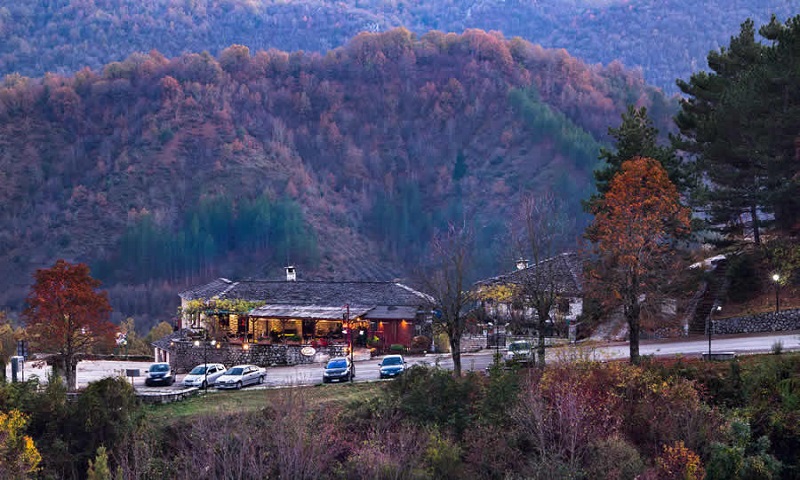
Which restaurants or chefs have served you as inspiration, in how they approach sustainability?
I am inspired by all those who put local ingredients, heirloom varieties, local cuisine first. Think Global, Cook Local!
If given the chance to turn back time – is there anything you’d do differently?
Time runs in one direction and I am more concerned with the future. We do as we can, always making mistakes and hopefully learning from them.
If given the chance to go back in time, I would probably try to do everything differently, but chances are I would still end up making similar mistakes and loving similar things in life…
Thank you, Vassily.
Discover the unique style and dishes of Kanela & Garyfallo here or check reviews on TripAdvisor.


